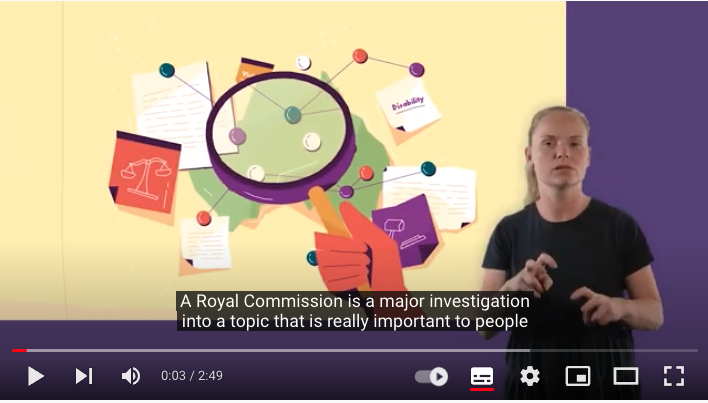Our Disability Royal Commission video is now available to view in Auslan. You can find it on our YouTube channel here: https://www.youtube.com/watch?v=101kZjZSDbs
More information about the Disability Royal Commission can be found on our website here: https://wwda.org.au/campaign/disability-royal-commission/
If you would like to tell your story to the DRC please get in touch with our policy and project officer, Tess, by emailing tessm@wwda.org.au or calling 0459 887 170.
[Image description: an image of the YouTube video which is an image of a magnifying glass over various documents. An Auslan interpreter is on the right of the image who is a person with blonde hair tied back wearing a black t-shirt.]
#Disability Royal Commission #DisabilityRC

